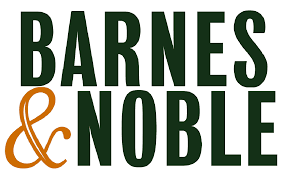In a time of rising authoritarianism and attacks on personal freedoms, the New York Times bestselling author of I’m Still Here chronicles her efforts to live as her full self in a society that wants women—and Black women in particular—to do anything but that.
As an antiracism educator and writer leading through America’s cycles of racial unrest, Austin Channing Brown reached a crossroads. “I love my work,” she writes, “and I am tired. We are tired. Tired of protesting. Tired of ‘saving democracy.’ Tired of educating and explaining.” She began to ask, “What do I deserve, not just as a citizen but as a human?”
Full of Myself answers that question. Weaving personal narrative with perceptive social commentary, Brown offers a look at the mechanisms that limit who Black women are allowed to be—at work, at home, in community—and the defining moments when she decided that self-possession is the justice work she had been made to undervalue. From skinny-dipping in the ocean to becoming a mom, she delves into the drama of life and invites readers to begin defining themselves not as empty vessels to improve the world, but as a people born free in spirit, in hope, in joy.
For Black women seeking to understand the true roots of their burnout, and anyone wondering what it means to live joyfully in a hostile world,
As I was writing I’m Still Here, I had two specific audiences in mind. The first is Black people. I wanted to write a book that made Black folks who navigate predominately white spaces feel seen and affirmed. I hoped that after every sentence a Black woman would nod her head and say, “THIS!” I hoped it would feel like taking off a bra at the end of a long day.
The second audience I had was for white co-conspirators in anti-racism. I have long stopped trying to convince white people to care about racial justice. But I truly enjoy chatting with the ones who are already committed. And I have found that while it can be easy to spot injustice in large arenas- like the criminal justice system. It can be harder to name how racial injustice may be unfolding right where you live, work, or worship. Enter Im Still Here. I hope it makes plain the everyday-ness of injustice and stirs ideas for how you can begin to fight back.
Okay! Now, just a couple words of warning about this book!
First of all, it’s important that you read it in a safe location. Make sure there are no breakables around because this book gets under your skin. Brene Brown wrote, “Most people say: that book has legs. I measure a book by how often I throw it across the room. Austin’s book has serious wings. It broke me open.”
In addition to keeping your belongings intact, I also want to warn you that friends might steal this book. Now, I don’t think it’s intentional; I would never say such things about your friends. But I have been informed at many a book signing that it’s the second time I’m signing because a friend refused to give back the copy they “borrowed”. So make sure you have a contract ready or a second copy of your own.
Now that I’ve told you all the important things, keep reading for my publisher’s official description of Im Still Here.
IM STILL HERE even stirs up trouble in fictional storylines. The little green book made her on screen debut in season two of Bel-Air, the Fresh Prince remake.
NEW YORK TIMES BESTSELLER • REESE’S BOOK CLUB PICK • From a leading voice on racial justice, an eye-opening account of growing up Black, Christian, and female that exposes how white America’s love affair with “diversity” so often falls short of its ideals.
Austin Channing Brown’s first encounter with a racialized America came at age seven, when she discovered her parents named her Austin to deceive future employers into thinking she was a white man. Growing up in majority-white schools and churches, Austin writes, “I had to learn what it means to love blackness,” a journey that led to a lifetime spent navigating America’s racial divide as a writer, speaker, and expert helping organizations practice genuine inclusion.
In a time when nearly every institution (schools, churches, universities, businesses) claims to value diversity in its mission statement, Austin writes in breathtaking detail about her journey to self-worth and the pitfalls that kill our attempts at racial justice. Her stories bear witness to the complexity of America’s social fabric—from Black Cleveland neighborhoods to private schools in the middle-class suburbs, from prison walls to the boardrooms at majority-white organizations.
I’m Still Here, Adapted for young readers
An adaptation of the powerful New York Times bestselling account of growing up Black and female in America, completely rewritten with new stories for young readers
In this adaptation of her bestselling and critically acclaimed memoir, she explores how America’s racial dynamics show up in the classrooms, friend groups, and conversations kids inhabit every day. “I love being a Black girl,” she writes. “And sometimes being a Black girl in America is hard.” Covering topics like representation, self-love, allyship, and being Black in public, Brown helps kids nourish their identity and make sense of how they fit into the world.
For students navigating a time of racial hostility, and for the adults and educators who care for them, this young readers version of I’m Still Here is an empowering look at the experiences of Black kids, inviting the reader to confront apathy, find their voice, and discover how Blackness—if we let it—can save us all.
“There's something for everyone within these pages...because there's something about being Black in America that connects us all. I'm Still Here is not just a title, it's a hard-earned, truth-drenched warrior's cry. With each story-within-a-story, Brown both unites and reminds us. WE are the standard; we cannot fail!" -Kelly J. Baptist, author of Isaiah Dunn Saves the Day
The New York Times Bestselling Anthology
Tarana Burke and Dr. Brené Brown bring together a dynamic group of Black writers, organizers, artists, academics, and cultural figures to discuss the topics the two have dedicated their lives to understanding and teaching: vulnerability and shame resilience. Contributions by Kiese Laymon, Imani Perry, Laverne Cox, Jason Reynolds, Austin Channing Brown, and more
It started as a text between two friends. Tarana Burke, founder of the 'me too.' Movement, texted researcher and writer Brené Brown to see if she was free to jump on a call. Brené assumed that Tarana wanted to talk about wallpaper. They had been trading home decorating inspiration boards in their last text conversation so Brené started scrolling to find her latest Pinterest pictures when the phone rang.
But it was immediately clear to Brené that the conversation wasn't going to be about wallpaper. Tarana's hello was serious and she hesitated for a bit before saying, "Brené, you know your work affected me so deeply, but as a Black woman, I've sometimes had to feel like I have to contort myself to fit into some of your words. The core of it rings so true for me, but the application has been harder." Brené replied, "I'm so glad we're talking about this. It makes sense to me. Especially in terms of vulnerability. How do you take the armor off in a country where you're not physically or emotionally safe?"
Long pause.
"That's why I'm calling," said Tarana. "What do you think about working together on a book about the Black experience with vulnerability and shame resilience?" There was no hesitation. Burke and Brown are the perfect pair to usher in this stark, potent collection of essays on Black shame and healing. Along with the anthology contributors, they create a space to recognize and process the trauma of white supremacy, a space to be vulnerable and affirm the fullness of Black love and Black life.
From the Team at Together Live!
Sixteen innovators, creatives, and thought leaders--Austin Channing Brown, Sue Monk Kidd, and Luvvie Ajayi Jones, among others--share intimate stories of uncovering beauty and potential through moments of fear, loss, heartbreak, and uncertainty.
Over the course of four years, the traveling love rally called Together Live brought together diverse storytellers for epic evenings of laughter, music, and hard-won wisdom to huge audiences across the country. Well-known womxn (and the occasional man) from all walks of life shared their most vulnerable truths in a radical act of love, paving the way for healing in the face of adversity.
Now, off the stage and on the pages of Hungry Hearts, sixteen of these beloved speakers offer moving, inspiring, deeply personal essays as a reminder that we can heal from grief and that divisions can be repaired. Bozoma Saint John opens herself up to love after loss; Cameron Esposito confronts the limits of self-reliance in the wake of divorce; Ashley C. Ford learns to trust herself for the first time. A heartfelt anthology of transformation, self-discovery, and courage that also includes essays by Luvvie Ajayi Jones, Amena Brown, Austin Channing Brown, Natalie Guerrero, Sue Monk Kidd, Connie Lim (MILCK), Nkosingiphile Mabaso, Jillian Mercado, Priya Parker, Geena Rocero, Michael Trotter and Tanya-Blount Trotter of The War and Treaty, and Maysoon Zayid, Hungry Hearts shows how reconnecting with our own burning, undeniable intuition points us toward our unique purpose and the communities where we most belong.



























